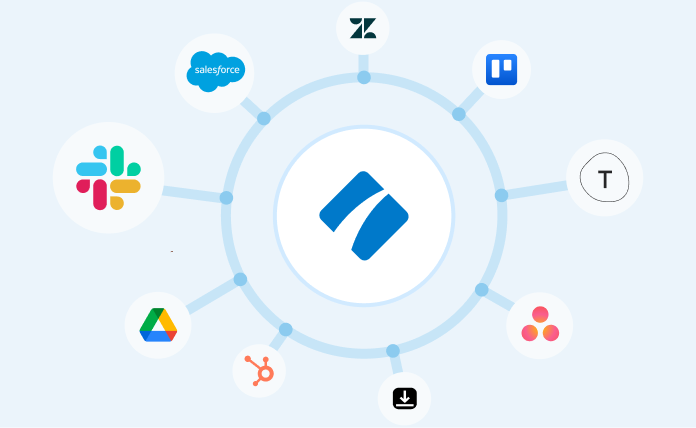 Every company needs HR, but not every company needs an HR department.
Every company needs HR, but not every company needs an HR department.
For those who aren’t looking to set up the traditional HR team, Payroll Processors has the solution: an entire HR department stuffed into a single platform so you can streamline all your payroll and employee management needs in one place.
Much like us here at Process Street, the folks at Payroll Processors believe: let us take care of things so you can focus on your business.
It’s no surprise, then, that when Payroll Processors wanted to focus on its business, it came to us, and so began a beautiful relationship.
Watch Adam describe the process step-by-step here:
The onboarding problem
Client onboarding comes with a variety of challenges, but for Payroll Processors, the main issue was information.
On average, it took about 14 days to onboard a new client, and even then, all of the information and documentation needed weren’t being collected accurately and efficiently. Accuracy is always very important, but you definitely don’t want to make a mistake when it comes to someone else’s money.
Building the process
“We set out to build a process that would allow us to have quality assurance controls over the information, and also open things up to have a collaborative experience with our customers.” – Adam Schweickert
The client onboarding process requires information first from the salesperson and then from the customer.
The sales part of the process is completely internal, and where the conditional logic is actually triggered (I’ll get to where the results come into play in a sec). Once the salesperson is added to the checklist, the rest of their tasks are automatically assigned.
One small step for payroll, one giant leap for accountability.
The conditional logic is designed so that the customer only sees what they need and nothing they don’t.
I know – conditional logic sounds totally illogical when you try to explain it, so let’s take an example.
Your company is based in Illinois and you want to use Payroll Processors to process your payroll. You don’t need to know what the withholding amount in North Carolina is or employment regulations in Nebraska. You only need to know about Illinois.
When the salesperson fills out their part of the workflow, they select Illinois from a multichoice field. That field is tied to a rule in conditional logic that will trigger information specific to Illinois to show up later in the workflow.
You don’t have to sift through the tax laws of 49 other states to find the data you actually need to know.
“Conditional logic is vast, but this illustrates how you can use the program to only put that pertinent information in front of somebody and clean up the excess fluff that doesn’t need to be a part of it.” – Adam Schweickert
Payroll Processors also incorporated automations to really kick it up a level. With Process Street’s automations features, the company was able to:
- Integrate with Docusign to automatically send the customer a signature request;
- Generate a personalized email explaining the steps of the process;
- Use Zapier to add the Docusign envelope download link to the onboarding workflow;
- And run the implementation workflow and pre-populate it with data from the onboarding workflow.
The part that Adam really loves, though?
The customer is kept updated on the process every step of the way, so they’re always in the loop.
Payroll processing pros
By using Process Street for its client onboarding, Payroll Processors has cut the onboarding time from 14 days down to 5.
The new workflow didn’t just make the process faster; both the information collected and the experience of the customers have substantially improved. The salespeople are probably pretty dang happy, too.
“It has really been a game-changer for us, getting us complete information, allowing for more quality control, and also allowing us to collaborate more directly with the customer to streamline that whole process.” – Adam Schweikert







 Workflows
Workflows Forms
Forms Data Sets
Data Sets Pages
Pages Process AI
Process AI Automations
Automations Analytics
Analytics Apps
Apps Integrations
Integrations
 Property management
Property management
 Human resources
Human resources
 Customer management
Customer management
 Information technology
Information technology



Leks Drakos
Leks Drakos, Ph.D. is a rogue academic with a PhD from the University of Kent (Paris and Canterbury). Research interests include HR, DEIA, contemporary culture, post-apocalyptica, and monster studies. Twitter: @leksikality [he/him]